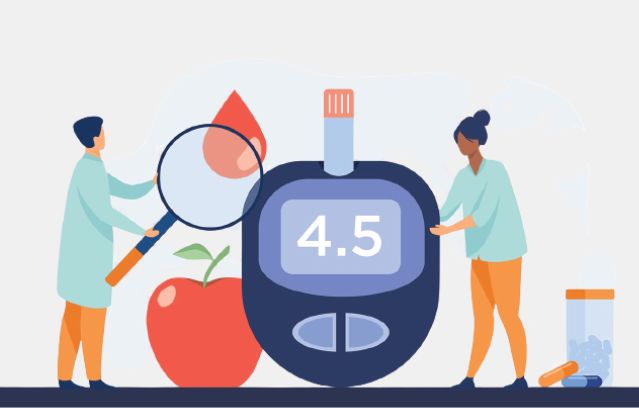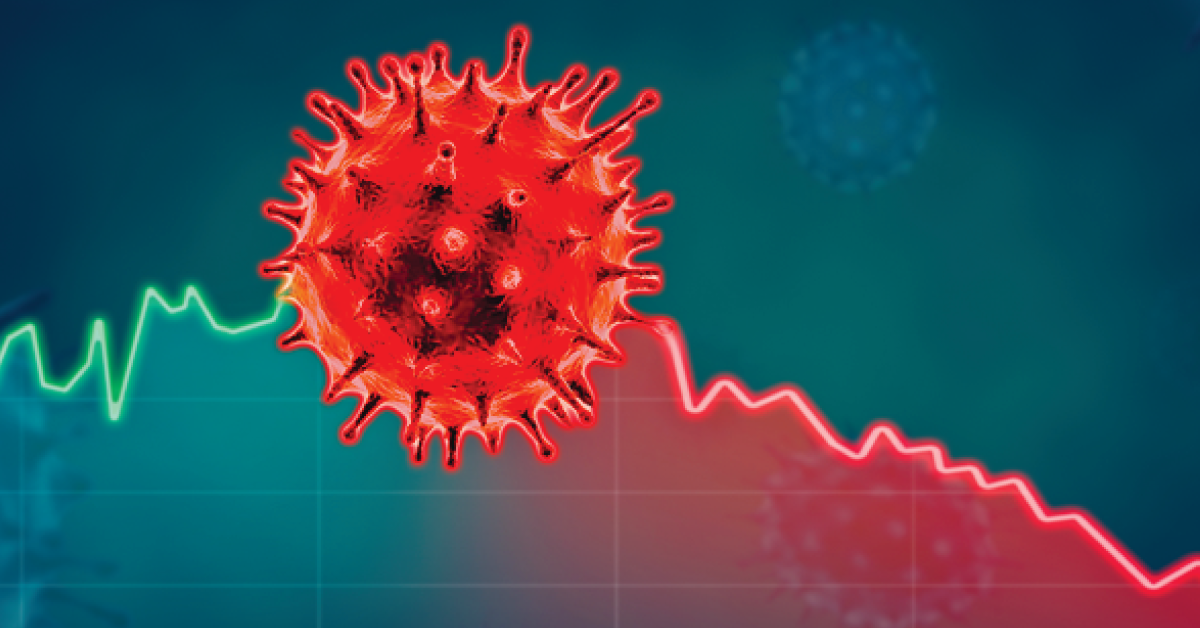
Diabetes is a chronic health condition where the hormone insulin is not balanced. Insulin breaks the food to glucose. If it fails, glucose directly enters into the bloodstream. Which leads to hyperglycemia. As the food enters our body, pancreas secrete insulin. Insulin breaks the food into glucose and sends in the form of energy to the body. If at all the pancreas fails to secrete insulin or secreted insulin is not sufficient, then the condition hyperglycemia occurs. This leads to diabetes. There are two types of diabetes. They are type1 and type2.
Types of diabetes
Type1 diabetes is an autoimmune condition that is also called juvenile diabetes. That is it attacks on its own. In this condition the patients need to take insulin on a daily basis. In all those who suffer from diabetes, 5-10% have type1 diabetes. It is mostly observed in adolescent children, teenagers and young adults. Few cases in these can be genetic too. As this attacks on its own, preventive measures are still unknown.
Type2 diabetes is the result of imbalanced sugar levels. That is, the body cannot maintain the insulin levels to regulate glucose. Fortunately this can be prevented. With few changes in lifestyle and dietary habits we can be away from type 2 diabetes. Even if it attacks, the symptoms are not seen instantly. They are developed over a period of time. This is being seen in 80-90% of the patients. So a regular visit to a general physician can help in early diagnosis.
Symptoms
In type1 diabetes the symptoms are easily identified. But in type2 diabetes the symptoms are latent. It takes a longer time to observe. Anyways the common symptoms are as given:
- Excessive thirst.
- Unexplainable and unusual urination
- Frequent hunger that is not seen earlier
- Fatigue
- Blur in vision
- Delay in healing of an injury or wound.
A general physician can assist you in dealing with diabetes symptoms. It is necessary to test the blood sugar levels and know what type of diabetes it is. Even if there is pre-diabetes general physician can help to cope up. Pre-diabetes has also become prevalent. This can increase the chance of getting type2 diabetes shortly.
Diagnosis for diabetes
There are blood tests to diagnose diabetes. There are mainly four types. They are as given.
Random blood sugar test. Whether you have food or not, or when you last ate does not matter here. A blood sample is collected at random time and tested. If the glucose level in the blood is 200 milligrams per decilitre (200 mg/dl) – 11.1 millimoles per liter (11.1 mm/l) or more than this says it can be diabetes.
- Fasting blood sugar test.
A blood sample is taken from the patient with an empty stomach. That is after dinner at night nothing is to be eaten till the sample is collected (fast). If the sugar levels in the fasting test are less than 100 mg/dl that is 5.6 mmol/l is considered to be normal. If the sugar levels at fasting are from 100-125 mg/dl that is 5.6-6.9 mmol/l is observed as pre-diabetes. If the sugar level is higher than 125 mg/dl (7 mmol/l) then it is diabetes.
- Glycated hemoglobin (A1C) test.
This test is to check the sugar. levels in the blood for the past 2-3 months. This test can measure the glucose attached to hemoglobin in red blood cells. If A1C level is 5.7% it is normal. If it is 6.4% it’s considered to be pre-diabetes. An A1C level of 6.5% or more shows that it can be diabetes. If the blood sugar levels are more, then more hemoglobin is attached to blood sugar.
- Oral glucose tolerance test.
For this initially blood sample is taken in fasting. That is with an empty stomach. Later a glucose water or a sugary liquid is to be taken. After a period of 2 hours, sugar levels are tested regularly. If sugar levels are less than 140 mg/dl (7.8 mmol/l) it is normal. If it is more than 200 mg/dl (11.1 mmol/l) means it can be diabetes. If the sugar level is between 140-199 mg/dl (7.9-11.0 mmol/l) it is pre-diabetes.
Apart from this if the general physician has a suspicion of type1 diabetes a urine test can be recommended too. Here the presence of Ketones is tested. When a muscle and fat are used for energy, the byproduct released is Ketone. General physicians might also ask for a test for autoantibodies.
Role of general physician
If at all there are any symptoms of diabetes or if there is a family history of diabetes please consult a general physician. It is good to discuss the symptoms or history and take suggestions. It can help in early detection or prevention too.
The general physician can ask for the diagnosis and proper tests to be done. If at all diagnosed also do not panic. If you have pre-diabetes then a general physician can advise a few changes in lifestyle. Guidance can be given to reduce the consequences of diabetes on health and regular life. Dietary changes, work outs or some simple exercises can help to manage pre-diabetes. Even an online consultation with a diabetologist can help too.
If diagnosed with diabetes, initially one needs to be careful to avoid further risk factors. The foremost thing to be done is to visit a general physician on a regular basis. At least once in three months, that is four visits per year can give a proper understanding of your body condition. Further medications or treatment as per the body condition can be suggested.
Persons who must visit a general physician.
Diabetes type2 symptoms are not easily observed. So even if a person seems so healthy they might have diabetes. So to avoid last minute panic it is better to be careful from the beginning. Some people need to consult with a general physician irrespective of their health.
- People with 35+ age. Because aging in these modern days is the main cause for many diseases.
- Pregnant women. There is a chance to get gestational diabetes so consultation is needed.
- With a family history of diabetes. If mother or father or both have diabetes, there are all possibilities to get diabetes. Be it any type.
- People with heart diseases. Studies have shown that those who have heart problems are more likely to get diabetes.
- People who have obesity, high cholesterol or whose body mass index (BMI) is higher have a chance to get diabetes.
- People who smoke, take alcohol and other tobacco products can also get diabetes.
Diabetes care
The first person to take care of diabetes is oneself. Because the symptoms are seen within oneself. The lifestyle changes are self made. If continuous differences in health are observed then initially consult a general physician. If you suspect the symptoms a diabetologist can also be consulted.
An online consultation with a general physician can give necessary tests to be done. Lab tests, physical examinations and normal check ups can clear many doubts. A General physician can assist to cope up. If at all needed they can refer to a diabetologist or other concerned specialist. If the general physician is also a diabetologist then no more considerations. It is all good to start with a general physician.


